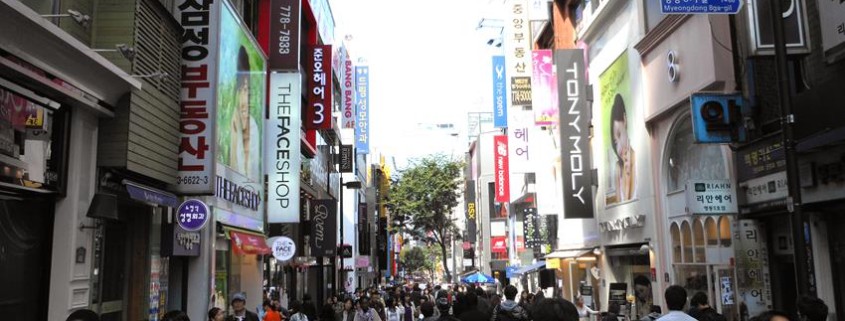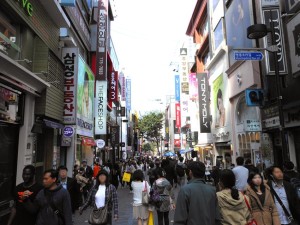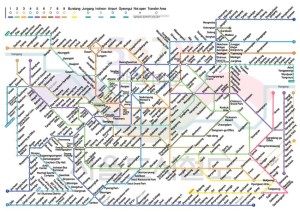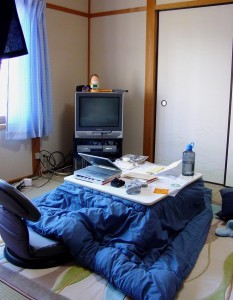Truth about Your Teaching English in Korea Salary
With teaching English in Korea, anything is possible!
Who doesn’t want to travel after graduating from university? Drink tea in China, ride a scooter through Vietnam, live like a local in Seoul… talk about the dream. But with student loans and other debt, that dream can seem pretty challenging to fund. But if you were to consider a teaching English in Korea salary, then you are one big step closer to that dream of living and working abroad!
Enter teaching English in Korea!
If you’re a recent grad ✅
with student loans ✅
who likes to travel ✅
Your teaching English in Korea salary could be your perfect opportunity to see the world while paying off your debt.
How much can you save on a teaching English in Korea salary?
Short answer: A LOT! Firstly, we’ve broken down how you can save money while in South Korea:
1: Free Housing
Every school in the country provides their foreign English teachers with accommodations, which means you can say goodbye to spending half your paycheck on rent.
So, curious about what this could mean in real dollars? We’ve compared average 2018 rent prices for a studio apartment in some of our favorite international cities to give you an idea. This is the kind of money you could be saving per month by teaching English in Korea, which includes free accommodation.
| Vancouver, BC, Canada | $2,100 CAD // $1550 USD (www.padmapper.com) |
| London, England | £1,700 // $2150 USD (https://www.expatistan.com/cost-of-living/london) |
| San Francisco, California, USA | $2,400 USD (https://www.rentcafe.com/average-rent-market-trends/us/ca/san-francisco/) |
| Melbourne, Australia | $900 AUD // $630 USD (https://www.rentcafe.com/average-rent-market-trends/us/fl/melbourne/) |

2: Great Salary
Most Korean schools offer contracts in the range of 2.2-2.5 million KRW per month (depending on your experience), which works out to $1900-$2200 USD per month (and as much as $2900 CAD or $3,000 AUD).
Let’s think about the perks that make this an incredible way to save:
No Rent
Of course, when you don’t have to subtract rent from your teaching English in Korea salary, you can make less money and still save more.
Let’s look at an example. Meet Jenny, a recent University graduate working an entry-level sales job in London. Her salary is works out to $32,000 USD and she shares a flat with a friend:
| Working in London | Teaching English in Korea | |
| Monthly salary | $2,700 USD | $2,300 USD |
| Rent payment | $1250 USD | $0 |
| Total after rent (take home pay) | $1,450 USD | $2,300 USD |
The bottom line?
Jenny could be saving almost $1000 per month simply through free housing in Korea. That money could go straight towards paying down her loans!
Low Tax Deductions
| Country | % Income tax deduction based on $25,000 USD annual salary | Income lost to tax per year |
| Korea | 3.3% | $825 USD |
| Canada | ~ 20% | $5,000 USD |
| New Zealand | ~ 15% | $3,600 USD |
| USA | ~ 13% | $3,200 USD |
*note: the ~ values are based on hypothetical situations. Rates vary by region and factor in many costs and circumstances.
As you can see, taxes in South Korea are low. Because of this simple fact, the potential savings are huge!
3: Cheap Travel
How many recently graduated twenty-somethings DON’T have the travel bug? We get it. Adventure calls!
The biggest issue? Travelling is expensive. As I’m sure you are aware, if you’re an Instagram travel influencer (those people have seriously got it figured out), travelling can be costly.
When you teach English in Korea, though, you kill two birds with one stone: you get to make money while you’re travelling.
And once you’re in Asia, travelling between countries is cheap and easy!
Seoul ✈ Tokyo, Japan: $200 USD roundtrip
Seoul ✈ Hong Kong: $250 USD roundtrip
Seoul ✈ Ho Chi Minh, Vietnam: $330 USD roundtrip
Seoul ✈ Bali, Indonesia: $400 USD roundtrip

Most Korean schools offer 10 vacation days PLUS all national holidays, which means you can bet you’ll have time to travel around Asia for a much smaller price tag than if you went from North America.
You’ll be able to live in South Korea, travel to amazing places on your holidays, and still pay off more loans than you would elsewhere.
How to budget with your teaching English in Korea salary
Sounds pretty enticing, right?! However, don’t get us wrong – if you come to this country to teach, you can’t spend like crazy and think you’ll have put a huge dent in your loans at the end of the year. You still have to budget well and spend responsibly.
We’d highly recommend checking out Well Kept Wallet for some FANTASTIC tips on how to budget well.
Let’s look at two possible scenarios for two people with contracts at the same school in Seoul, both making 2.4 million KRW ($2,100 USD) per month:
| Spendy Sally (AKA The Girl Who Pretends Her Debts Don’t Exist) | Saver Sam (AKA The Budget King) | ||
| Income per Month | $2,100 | Income per Month | $2,100 |
| Housing | FREE! | Housing | FREE! |
| Utilities, Taxes, Phone, Health Care, Pension (The boring stuff) | $350 | Utilities, Taxes, Phone, Health Care, Pension (The boring stuff) | $350 |
| Food | $800
She decides to live it up and eats out a ton, barely cooking for herself |
Food | $200
He cooks for himself most nights, only eating out every once in a while |
| Shopping | $500
She can’t resist that new outfit |
Shopping | $50
A few new items every here and there |
| Travel | $400
She takes a weekend trip somewhere in Asia every month! |
Travel | $600
He travels a few times during the year (average $100 per month). |
| Balance (end of month) | $50 | Balance (end of month) | $1,400 |
Both Sally and Sam were making $2,100 per month, but Sam was able to save over $1000 of that because he budgeted well.
So, since Sam was a wise little guy, he was able to have the adventure of a lifetime and pay off a good chunk of his loans.
There’s a clear winner here, though, and that you should not be like Sally. Be like Sam. Use budgeting tips from pros like the Well Kept Wallet and being debt-free will come way more quickly.

You Should Probably Do This
Getting out of debt quickly can feel like an impossible task. However, if you put some fiscally responsible practices in place with your teaching English in Korea salary, you’ll be able to experience a new culture, travel, and pay off significantly more loans than you would back home.
Remember, the faster you pay off your loans, the less you pay on them overall. Interest is real, folks. You don’t want to mess with it.
Apply today to get one step closer to maximizing your teaching English in Korea salary
So, paying off debt and having the adventure of a lifetime is definitely within your reach. We’d love to support you through the process – and taking the next step towards your adventure abroad is EASY!
Importantly, follow the link below to fill out our quick application form (it takes less than 5 minutes) and we’ll be in contact with the next steps!















 When you arrive at the airport, you can connect to WiFi while you wait for your next move (someone picking you up, or a bus). If you’re lucky, internet in your apartment will still be running from the teacher before you. Most will have to wait to get internet set up at home.
When you arrive at the airport, you can connect to WiFi while you wait for your next move (someone picking you up, or a bus). If you’re lucky, internet in your apartment will still be running from the teacher before you. Most will have to wait to get internet set up at home.